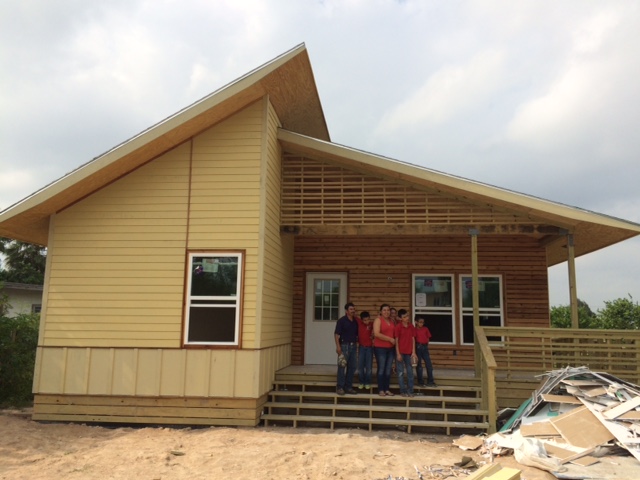About RAPIDO
In 2008, Hurricane Dolly hit the Texas Gulf Coast in an area called the Rio Grande Valley. A third of the Rio Grande Valley’s population lives below the federal poverty level, and close to 30% of the region’s residents do not have health insurance. The Rio Grande Valley is populated with immigrants who work insecure jobs in grocery, fast food, retail, and domestic work, typically for meager wages. Many of the individuals and families in Rio Grande Valley struggle with housing insecurity.
When disasters like Hurricane Dolly strike a community like the Rio Grande Valley, it has devastating impacts. The hurricane caused $1.35 billion in damages resulting in over 38,000 families applying for FEMA assistance, over half of which were denied because their homes before the disaster were deemed in “substandard condition.” Households that were already most in need of assistance before the storm were least able to access it when they need it most.
The Lower Rio Grande Rapid Recovery Re-Housing Program (RAPIDO), in collaboration with the Community Development Corporation of Brownsville, community organizations, and a design firm, offered a solution grounded in the needs and ideas of the people it intends to support. RAPIDO is a model of rapidly rebuilding temporary to permanent homes after a disaster. Within weeks of a disaster, the program provides a 400-square-foot core housing unit to a family’s property. Families work with local contractors to customize the structure and add additional rooms to meet their needs. This is all at the same price as a temporary FEMA trailer.
Recently, this model expanded to Houston with the collaborative effort of Texas Housers, Covenant Community Capital, and Enterprise Community Partners.
Impact on frontline communities
RAPIDO responds to long-term disaster recovery using a bottom-up, community-based approach centered on the families it intends to support. Families can recover faster and with the agency.
The RAPIDO model also recognizes that “pre-recovery” activities must start before a disaster. They developed guidelines with a diverse set of stakeholders to ensure varied and high-quality home designs, trained a local labor force, and built teams knowledgeable in outreach, case management, eligibility requirements, and the design and construction process to support local jurisdictions and assist families in navigating the recovery process.
RAPIDO also provides affected families the opportunity to work with a designer on their homes.
Presenting choices instead of a disposable or standard model home reestablishes a sense of control and agency during a period that often leaves families feeling helpless. In practice, these choices result in a home that better meets each family’s needs builds stronger neighborhood attachment, and increased neighborhood stability and resilience.
RAPIDO Program
More resources
Featured Image Source: Texas Housers

- Toolkit